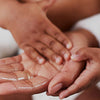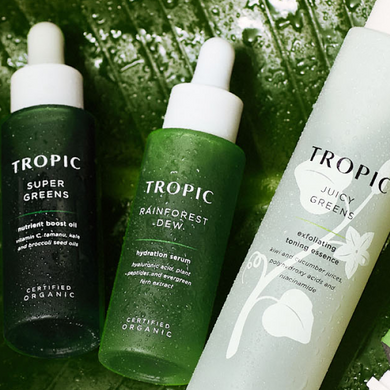Why insomnia is a sleepless battle you can – and will – eventually win.
More than a third of British adults class themselves as insomniacs, two thirds complain of disrupted sleep, and almost a quarter get no more than five hours a night (Aviva).
Not so long ago, a habitual lack of sleep was a marker of ambition and success. Margaret Thatcher stated that “sleep is for wimps”, getting by on four hours a night. Bill Clinton, five. Prince, the rock star, just did cat naps.
Today, even with insomnia figures soaring, there are still plenty of people with a gung-ho approach to getting their eight hours’ kip, figuring there are more important things to be done to make for a life well lived. There aren’t, though.
Sleep, Glorious Sleep

Twenty years of scientific sleep research has taught us that quality sleep is more important for our physical and mental health than diet and exercise. A lack of it has major causal links to poor immunity, obesity, heart disease and diabetes (NHS). It can set off inflammatory skin conditions such as acne and rosacea. All the while, we’re busy un-learning how to sleep as a society altogether, caught in a web of sleep-disturbing blue light from our devices, the relentless social media feedback loop and a real world that is getting increasingly disconcerting and unpredictable.
In the short term, chronic lack of sleep deprives the brain of its opportunity to process and recuperate, so it slows down your body and mental functions. Initially, you will run on the adrenalin your body is pumping out in a bid to keep you ticking over, but this exhausts your systems even faster than sleep deprivation itself. But if you don’t prioritise your sleep, you end up caught in a downward spiral of continuously running on empty – until there’s nothing left.
After a lifetime of sleeping like the proverbial rock, I had insomnia for three lost years of my life before escaping its clutches. The stress and worry of not sleeping are crippling. However, as someone who’s been there and done that, I also need to hear (because it’s true) that the body can cope with a lot. A period of bad sleep can not only be overcome, but its effects can be extinguished. So, let’s focus on beating sleeplessness: how to nip it in the bud, how to handle a bout of it and how to free yourself from it if it dares to take over your life.
Don’t Panic
Sleeplessness can be set off by any shock to the system, however minor. I’ve heard stories of people not sleeping for years after being scared by a mouse in the house, or having been upset by being stuck on a boat for a week with the wrong pillow. Even a single sleepless night is upsetting; it never makes sense and leaves you feeling out of control. My most important piece of advice at this stage is: don’t panic. A period of bad sleep won’t hurt you. Obsessing over it, though, can send you into a tailspin. I know – because it did. Very soon, the fear of not sleeping becomes the main reason you can’t sleep. The brain learns to associate sleep with panic, identifying it as something to be avoided. You find yourself exhausted but wired all night, as your brain throws anything it can (delusional thoughts, irrational fears, panic attacks) at you to keep you awake.
Nipping sleeplessness in the bud really is a matter of ‘sleep hygiene’; putting in place all the stuff that helps you sleep well, and eliminating what doesn’t. The things I know make a difference are blackout curtains (you don’t want to notice the light changing), industrial-strength ear buds (BioEars are the best) and a total absence of blue light devices (tvs, phones, tablets) in the bedroom. Developing a self-care ritual that heralds the end of the day and the start of a peaceful night has also been proven to put your mind in the right place for sleep.
Try a Self-care Spritz

It’s why Susie Ma added her So Sleepy Pillow Mist to Tropic’s product arsenal. “I love sleep so much,” she says, “I want everyone to know the joy and importance of it. But in talking to our Ambassadors, and seeing my mum struggle with menopause-related sleeplessness, I realised sleep doesn’t always come easy. So I created So Sleepy.” An alcohol-free, personal blend of essential oils, it’s based on Susie’s research and personal experience. “Lavender calms and relaxes bees, working as a natural sedative, so they stick around and pollinate for longer,” she says. “No wonder it makes us sleepy. Rose geranium is mood balancing, rosewood grounding. Camomile just chills you out. Eucalyptus clears the mind and uplifts – and I associate it with happy childhood memories.”
In a clinical study using the London Sleep Centre scoring pattern, it was found the mist can improve disrupted sleep by a ‘highly significant’ 33 per cent after just seven days of use. So a few spritzes before you go to bed, maybe accompanied by a good book to take your mind off the day, are a no-brainer. One personal tip: if you wake in the night and struggle to nod off again, don’t try to ‘knock yourself out’ with more of the mist. You want your brain to associate it with a calming pre-bed ritual, not the inevitable panic you feel at 4am when you can’t sleep.
Steady On Back To Sleep
And what if you already suffer from chronic sleep deprivation? The trick here is to not give up. There is a way out, but it’s different for everyone. Some things should be standard-issue: apart from self-care and sleep hygiene, I urge every insomniac to get into exercise (just brisk walks will drain your brain of worry) and some form of mindfulness like yoga or meditation. Both give a sense of control and balance, even if everything around you seems to fall apart. While they can’t put you to sleep, they will help you cope much better on the road back to slumber.
Seek help – your GP can give you a host of things to try so don’t let yourself be fobbed off with a single suggestion or tablet. Gentle touch and attention are a great help – I found solace in cranial osteopathy and reflexology. Some people benefit from talk therapy or cognitive behavioural therapy (CBT). There are apps to try, and sleep courses. Keep at it; we all have different body chemistry and different life circumstances, so allow yourself time and patience to look for your solution. I found it – and so will you.

 Skincare
Skincare
 Bestsellers
Bestsellers
 Makeup
Makeup
 Body Care
Body Care
 Men's
Men's
 Hair Care
Hair Care
 Mama & Baby
Mama & Baby




















